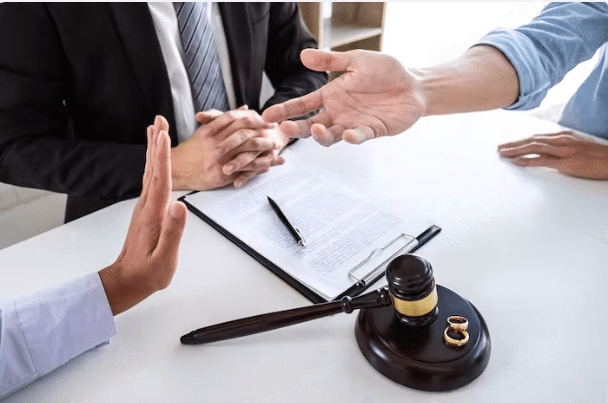
Divorce is now a bit easier in the UK than it used to be. There are now three main types of divorce – civil, criminal and joint. Civil divorce is the most common type and allows for one spouse to get a divorce without any children involved. Criminal divorce is where one spouse has committed a crime, and their partner gets divorced to save themselves from prison. A joint divorce is where two spouses are divorced but still live together and share all the marriage responsibilities.
What Causes Delays in a Divorce Timeline?
A variety of factors can cause delays in a divorce timeline, but some of the most common causes are:
- Misunderstandings between husband and wife about what is expected during the divorce process;
- Differences in expectations about what will happen once a divorce are finalised (e.g., communication difficulties, children’s roles in the relationship);
- Lack of communication between husband and wife about specific steps in the divorce process (e.g., oral agreement, property division).
The key to avoiding delays is to ensure both husband and wife understand the steps involved in their divorce – ask them questions and be willing to listen as they discuss their concerns. If you find yourself having trouble getting your divorce processed quickly, it may help to work with an experienced lawyer who can help you navigate the legal system on your behalf.
Phase One: The Application
The first phase of divorce proceedings is to fill out a divorce application online or by phone. Online divorces are faster and more user-friendly, but they may not be accurate due to updates. Phone divorces are more accurate but can take longer.
When you complete the divorce application, you will need to provide certain information, such as your name, date of birth, and country of residence. You may also be asked to provide contact information for your ex-spouse if they have been listed on the application.
Once all the required information has been provided, you will need to wait for a response before starting the process. If everything goes smoothly, you will likely receive a notice in the mail announcing your divorce has been finalised.
Phase Two: Respond to a Divorce Application
When you receive a divorce application from your ex-spouse, it is important to respond in a way that shows that you are handling the situation responsibly. You should be prepared to answer any questions the application may contain and ensure that all your legal options are considered. If you choose not to answer the application, it could mean that your ex-spouse will have to go through court to get a divorce themselves.
Phase Three: Cooling Off
When a married couple divorces, cooling off is key to ensuring everyone is on the same page. This usually means talking about what happened and why it happened. The first step in any divorce is to cool off – including both parties involved.
If one or both of you feel like you’re not getting along, it can help to talk things out. This can be hard, but if done well, it can help to get your relationship back on track. In some cases, the divorced couple may end up agreeing on a split custody arrangement or even finding a way to keep their children together.
In other circumstances, specific steps need to be taken before a divorce can happen – these steps vary depending on the UK divorce law. If you’re divorced in the United Kingdom, however, you should know what those steps are and follow them as much as possible so that everything goes smoothly.
Phase Four: Conditional Order
When you decide to divorce your spouse, getting a conditional court order from a family court is often required. A conditional order can make it easier for both parties to understand the terms of the divorce and avoid any potential litigation. Understanding the conditions under which one party is allowed to stay in the marriage, and another is not. In most cases, both spouses must agree to the condition before anything can happen.
For either party to agree to a conditional order, they must first be able to show that they are not happy with the other’s presence in the relationship. This can be done by providing enough evidence that one party no longer wants their partner in it or demonstrating that they have had an emotional upheaval since their relationship ended.
Phase Five: Final Order
In the UK, the final divorce order is a key issue in any separation or divorce case. This is because the Husband has ultimate control over children and other assets in the relationship. If they choose to stay together after the final order is made, they may have to give up some of these assets.
If the husband chooses to leave after receiving a final order, he must provide child support while they are awaiting final judgement on their divorce. He also has to provide financial compensation for them if they lose something in the relationship- this can be anything from money to a share of the property.

Conclusion
Divorce is a difficult and often complex process that can be costly and time-consuming. It can also be incredibly damaging to both parties involved.
- Divorce does not have to take place immediately; it can be delayed if some issues need clarification.
- There is a range of different divorce laws in the UK. You must consult an attorney to find the best one for you and your situation.
- The divorce process can take many months or even years. If you don’t have a divorce lawyer on your side, avoid any final decisions until you have had a chance to speak with someone about the law and your specific situation.
Was this article helpful? Let us know in the comments!
FAQs
What not to do during a divorce?
When a divorce is requested, both husband and wife must consider their roles in the relationship. Husbands have the right to make decisions that affect their spouse, such as whether or not to file for a divorce. The wife has the right to make decisions that affect her behalf, such as whether or not to pursue a legal divorce. However, there are some things husbands and wives should avoid while preparing for a divorce.
Husbands should avoid making unilateral decisions about the breakup of the relationship; doing so could lead to additional conflict and stress. Wives should avoid discussing the merits of a legal divorce without discussing what each wants; doing so could lead to further division and stress. Wives should also avoid revealing too much about their plans before talking with their husbands about them; this could lead to anxiety and a harder time negotiating an acceptable agreement.
What should I do immediately after divorce?
Following a divorce is a very difficult and emotional process. You should do many things immediately after the divorce has been finalised to help make it as smooth and easy as possible. First, you should get in touch with your lawyer to discuss your options for moving forward. You should contact your local registry office so that they may issue paperwork such as divorce papers. The purpose of this document is not just to end the marriage but also to start over with a fresh new start. Finally, If you have children, you should also consider how best to deal with them.
How do I avoid a messy divorce?
You can do many things to ensure your divorce is as smooth as possible. One way is to have a lawyer help you understand family law concerning divorce. Another way is to avoid major stress and conflict during the divorce process. Following these tips will make your divorce smoother and more peaceful.

